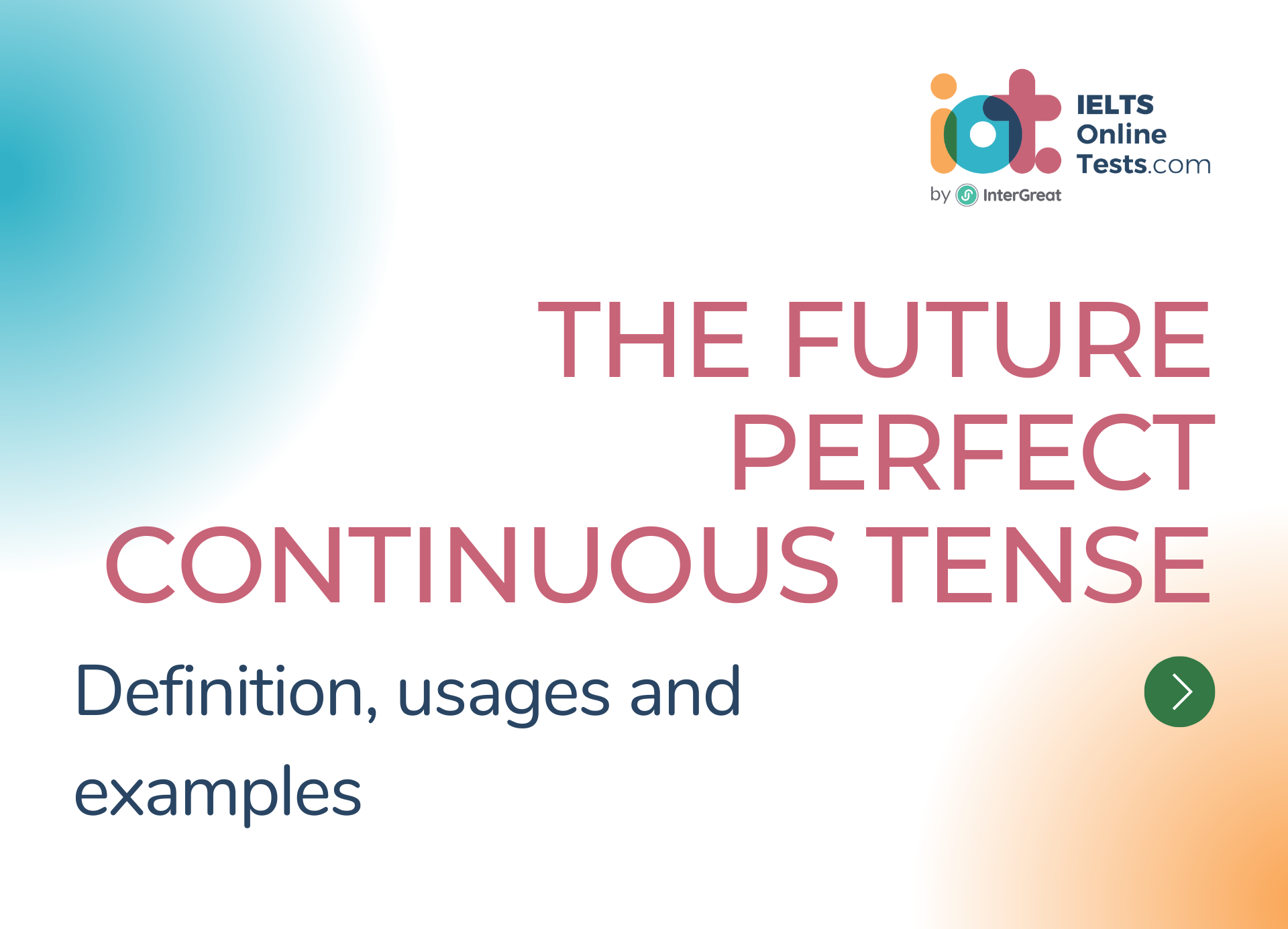
The future perfect continuous tense
The future perfect continuous tense, also known as the future perfect progressive tense, is used to describe a continuous action that will start in the future, continue for a period of time, and be ongoing until a specified future point. It emphasizes the duration or continuity of the action leading up to a specific time in the future.
Here's a detailed explanation of the future perfect continuous tense:
Formation of the Future Perfect Continuous Tense:
- The future perfect continuous tense is formed by using the future perfect tense of the auxiliary verb "will have," the past participle form of "been," and the present participle form (-ing form) of the main verb.
- Example: "She will have been studying."
Usage of the Future Perfect Continuous Tense:
- Describing an ongoing action that will start in the future and continue up until a specified future point:
- Example: "By this time next week, I will have been working on this project for a month."
- Expressing the duration of an action that will be ongoing and in progress in the future:
- Example: "He will have been practicing the guitar for hours before the concert."
- Referring to a continuous action that will have a result or impact on a future point:
- Example: "By the end of the year, she will be tired because she will have been running a marathon every month."
- Talking about an ongoing action that will be completed at a future point:
- Example: "We will be exhausted because we will have been traveling for days."
- Describing an ongoing action that will start in the future and continue up until a specified future point:
Examples of the Future Perfect Continuous Tense:
- "By next month, she will have been studying English for a year."
- "I will have been working on the assignment for hours by the time you arrive."
- "They will have been waiting in line for hours before the concert starts."
- "We will be tired because we will have been running all day long."
- "He will have been practicing the piano for years before he gives a solo performance."
Time Expressions Used with the Future Perfect Continuous Tense:
- Time expressions such as "by," "by the time," "for," "for hours," or a specific future point are commonly used with the future perfect continuous tense to indicate the duration of the action leading up to that point.
- Example: "By the end of the week, I will have been living in this city for a decade."
Negative and Interrogative Forms:
- To form negative sentences, add "not" after the auxiliary verb "will have."
- Example: "They will not have been playing basketball."
- For interrogative sentences, invert the subject and the auxiliary verb "will have."
- Example: "Will you have been studying for the test?"
- To form negative sentences, add "not" after the auxiliary verb "will have."
The future perfect continuous tense allows us to describe ongoing actions that will start in the future, continue for a period of time, and be ongoing until a specific point in the future. It helps us convey the duration and continuity of actions leading up to future events or actions. By using this tense correctly, we can effectively express the ongoing nature of actions and their duration in relation to specific future points in English.




